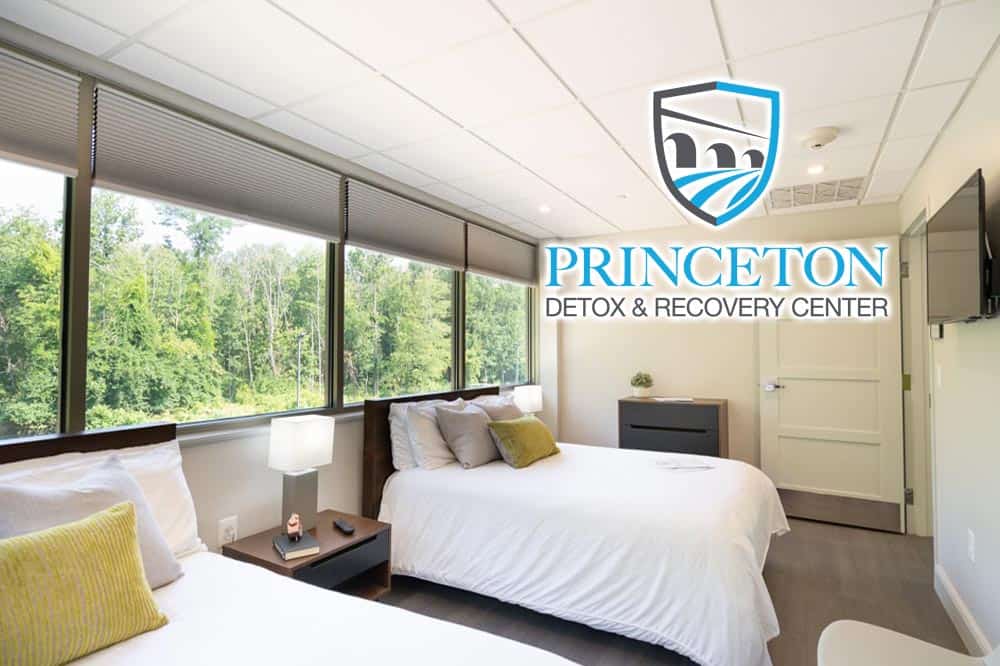Opioid Withdrawal
Timeline & Additional Information
The length of opioid detox depends on several distinct factors, including the severity of the opioid use disorder, the length of time the opioid was being used and the presence of pre-existing conditions (mental or physical). At Princeton Detox & Recovery Center we believe in the importance of individualized care during every stage of the addiction recovery process, beginning with medical detox. Because everyone is different, the most appropriate detox approaches vary on a case-by-case basis. If you or someone close to you has been struggling with an opioid addiction of any type or severity, we are available to help. We work directly with people of all ages who have been using heroin, prescription painkillers or synthetic opioids, helping them undergo a safe and comfortable withdrawal in a closely monitored environment. Contact us today to learn more or to get started with our simple admissions process.
Opioid Detox Timeline
In most cases, opioid detox takes a maximum of two weeks from start to finish. Although symptoms of opioid withdrawal are not typically life-threatening, they can be extremely uncomfortable, and often drive an individual back to drug use before the detoxification process is over. Any individual who has been using opioids should never attempt detox on their own, as the physical and mental symptoms can be overwhelming and potentially dangerous if not closely monitored by a team of medical professionals. Opioid detox should only be attempted in a safe and supportive environment, one with both therapeutic care and around the clock medical supervision available.
A Typical Timeline for Our Opioid Detox Program Looks Like:
- Day One – The client is admitted to our medical detox program. Each client undergoes an in-depth addiction assessment when they first arrive. This helps our clinical and medical team members determine which detox methods are going to be the most beneficial for each unique case. Once the assessment is complete the client is shown to their private bedroom and given the opportunity to relax and get acquainted with their surroundings.
- Day Two and On – The client has 24/7 access to professional medical care, ensuring all opioid withdrawal symptoms are treated as soon as they develop. In most cases, clients are treated with a combination of over-the-counter pain relievers and non-narcotic sleep aids. Psychiatric professionals are available to dual diagnosis clients. Vitals are checked regularly to ensure clients are physically stable. Each client has access to individual and group therapy sessions, recovery meetings and holistic workshops, though none are mandatory.
- Final Day of Detox – Each personalized aftercare plan has been finalized, and case managers help prepare clients for the next step in the recovery process.
We Are Here For You
Let Us Help You Heal
Our Opioid detoxification experience is second to none.
Learn how we can help by speaking with one of our Treatment Advisors today.
How Long Does Opioid Withdrawal Last?
The length of opioid withdrawal depends on several factors, including:
• The severity of the opioid use disorder.
• The type of opioid being used.
• Whether or not any other chemical substances were being used.
• The presence of any underlying mental illnesses.
• The presence of any chronic or preexisting health conditions.
• The method of ingestion (oral, intravenous, etc).

The Symptoms Associated with Opioid Withdrawal Follow the Timeline Below:
- Early Withdrawal – This stage of opioid withdrawal begins between 6 and 12 hours after the last use. These symptoms can be physically and psychologically uncomfortable, but they are easily managed. Symptoms of early withdrawal include sweating, excessive yawning, nausea, runny nose, low-grade fever, sleeplessness and restlessness.
- Peak Withdrawal – The symptoms of opioid withdrawal typically peak within 24 to 48 hours and last for several days. The physical and psychological symptoms of peak withdrawal are more severe, and include nausea and vomiting, severe stomach cramping, severe anxiety, intense opioid cravings, body tremors and insomnia. Clients are at exceptionally high risk of returning to opioid use during this time period, which is partially why inpatient detox is so important.
- Late Withdrawal (Post-Acute Withdrawal) – Once peak withdrawal subsides, symptoms lessen in severity and include drug cravings, insomnia and other sleep-related issues, anxiety and depression. In some cases these symptoms require medication assisted treatment. Medications like Suboxone (buprenorphine and naltrexone) can be beneficial to curbing drug cravings and preventing relapse during post-acute withdrawal.
Opioid Withdrawal Symptoms
Signs and Symptoms of Opioid Withdrawal Include:
- Agitation and irritability/changes to mood.
- Restlessness and an inability to sit still.
- Muscle aches and pains.
- Flu-like symptoms which might include an increased body temperature, increased tearing, runny nose and stomach problems.
- Nausea, vomiting and diarrhea.
- Severe stomach cramping (more common during peak withdrawal).
- Goose bumps and uncontrollable body tremors/shaking.
- Other physical symptoms (easily manageable) like profuse yawning.
Ready To Begin Your Detox?
Don’t let addiction control your life.
Call us today and let’s get you started on the path to a better you.
Opioid Detox Treatment
When it comes to the most effective methods of opioid detox, a combination of medications, therapy and holistic treatment options are typically beneficial. At Princeton Detox & Recovery Center we implement the following treatment options depending on the unique needs of each individual client:
- Medication Assisted Treatment – Medication Assisted Treatment (MAT) is often an important part of opioid withdrawal resolution. We utilize a range of proven and heavily researched medications to make the withdrawal process as comfortable as possible. For opioid dependencies we utilize Suboxone and/or Subutex. Both Suboxone and Subutex contain buprenorphine. Buprenorphine is an opioid partial agonist, which means that it satisfies the brain’s craving for an opioid and allows a person to avoid severe opioid withdrawal symptoms, but does not produce a high. Suboxone is buprenorphine combined with naloxone. Naloxone is an opioid antagonist, which means that it blocks the effects of opioids at the receptor sites, making it difficult to abuse. Both Suboxone and Subutex have been approved by the Food and Drug Administration (FDA) to treat opioid use disorder (OUD). Clients are slowly weaned off of the medication over the course of several days, which makes the withdrawal process relatively painless. Non-narcotic pain relievers, sleep medications, anti-anxiety medications and holistic treatment methods may also be employed to aid an individual in their opioid withdrawal.
- Individual, Group and Family Therapy – At Princeton Detox & Recovery Center we believe therapeutic intervention should begin during the very first stage of the recovery process. Therapy continues when a client transitions from medical detox into our IOP program.
- Addiction Assessment – Each client undergoes a personalized assessment upon admission to our medical detox program which helps our medical team determine which combination of detox methods are going to be the most beneficial for each unique case.
- Case Management Services – Each client is assigned a case manager who serves as a client advocate and helps the client and their loved ones navigate the early recovery process. The case manager also plays a significant role in the development of a personalized aftercare plan.
- Dual Diagnosis Treatment Options – Because the psychological symptoms of opioid withdrawal can be severe, we have psychiatric professionals on staff to help those struggling with dual diagnosis disorders.
- Personalized Aftercare Planning – Medical detox is a recommended first step when it comes to opioid addiction recovery, though we recommend detox is always followed by a higher level of clinical care. We offer an integrated IOP program for clients looking to continue their personal recovery journeys.
Is Rapid Opioid Detox Safe?
Some people might attempt to detox from opioids rapidly in an at-home setting. Rapid detox is unsafe and can easily result in a range of serious health-related complications. This type of detox refers to rapidly eliminating opioid narcotics from the system, which can cause major shock to the central nervous system and lead to more severe physical and psychological symptoms. The ideal setting in which to undergo detox is a residential or inpatient detox program such as Princeton Detox & Recovery Center. We allow the system to eliminate chemical substances at a natural rate, eliminating the risk of severe symptoms. We utilize proven medications like buprenorphine and naltrexone to alleviate potentially uncomfortable symptoms and overwhelming drug cravings whenever necessary, while simultaneously utilizing a combination of rest, relaxation, over-the-counter pain relievers and non-addictive sleep aids.
How to Find an Opioid Detox Program
If you or someone you love has been struggling with opioid addiction and is looking to take the initial step on the journey of addiction recovery, it is important to find an individualized detox which offers a range of addiction services and focuses on more than physical stabilization. During medical detox, laying a solid foundation for lasting sobriety should be a top priority. Our Treatment Advisors are always available to answer questions and to help you or your loved one get started with our simple and straightforward admissions process. As soon as you make the decision to reach out for help, we will be there. During our initial phone call we conduct a brief pre-assessment which helps our clinical team and medical professionals determine which detox methods are going to be the most beneficial for each unique case. We also offer a free, no obligation insurance benefit check for those who are looking into potential coverage options. If you or your loved one is not currently covered by a major national provider or regional provider in New Jersey, we offer additional options including self-pay and private pay. Once the finer details are sorted out we help arrange local travel to our Monmouth County, New Jersey detox facility. All you have to do is make the initial phone call and we will take care of the rest. Contact us today to begin.

Reviewed for accuracy by:
Amanda Hilzer M.Ed, CAADC, IADAC, ICCS, LCADC, CCS
Amanda graduated from Lehigh University with both an undergraduate degree in Psychology and a Master’s of Education degree in Counseling Psychology and has worked in the field of substance use disorder treatment and mental health treatment as a counselor and as a clinical manager for over 14 years.


































